Published: November 27, 2018
We, the People
The founders frame our future
Our Constitution starts with the popular refrain, “we the people, in order to form a more perfect union,” made famous by School House Rock.
The Preamble, courtesy of School House Rock.
These 2 concepts, “we the people,” and the ideal of a “more perfect union,” are the cornerstones of the revolutionary ideas of Madison and his contemporaries as they attempted to create the blueprint for a fledgling nation. The idea that a governmental structure could simultaneously protect liberty and allow for effective government was all but unheard of.
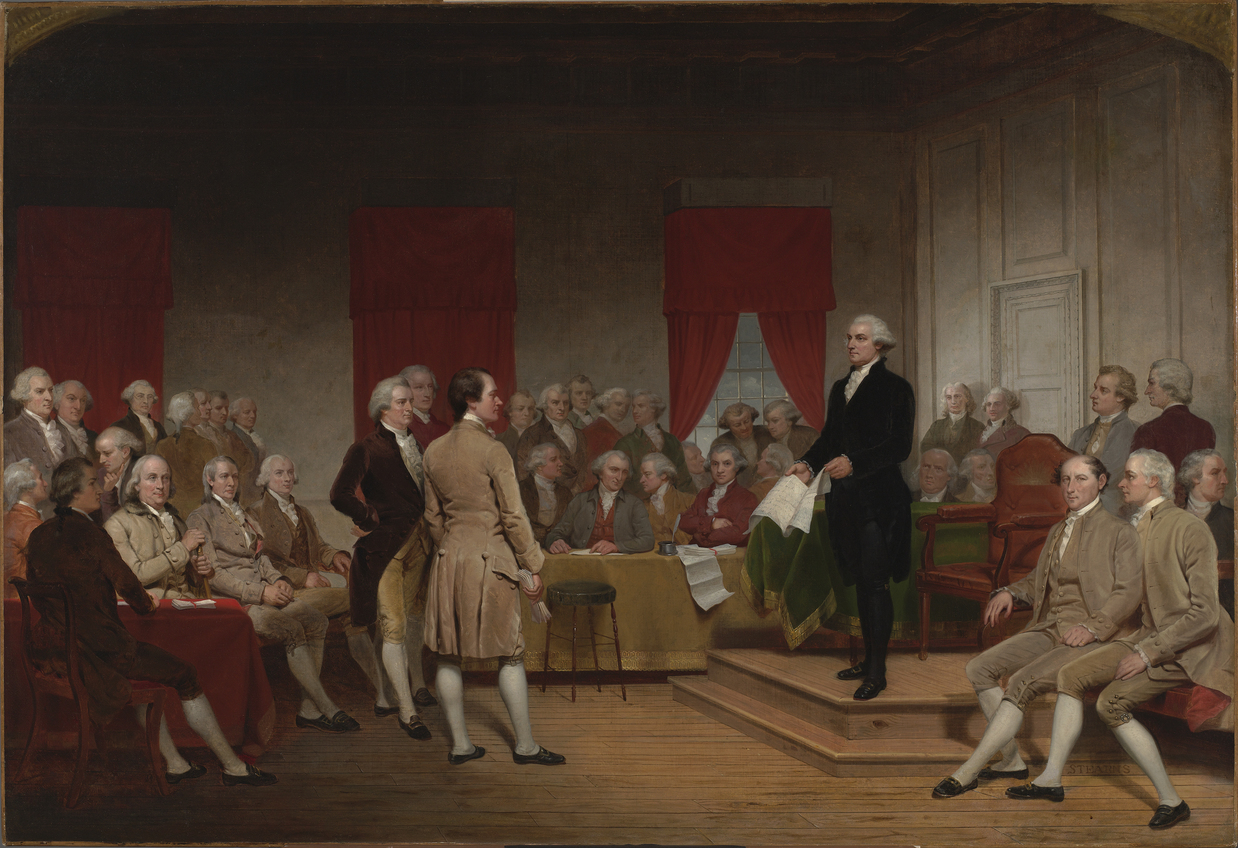
Constitutional Convention of 1787. Virginia Museum of Fine Arts, Richmond. Gift of Edgar William and Bernice Chrysler Garbisch.Photo: Katherine Wetzel © Virginia Museum of Fine Arts
Along with protecting against factions, creating a governmental system that included separation of powers and checks and balances to protect against self-interest and ambition, arguably Madison’s biggest contribution to our society are the principles of freedom and responsibility. These principles are paramount to the great American experiment in self-government, a previously unheard of trust in “we the people.” According to Madison, the freedom for individuals to exercise the mind is our most basic human right, and the one from which all of our other civil rights and liberties are derived.
The United States Constitution. DOD
Fast forward 231 years. Though much has changed in the age of “fake news,” hyper-partisanship, and Twitter wars, we are still contemplating the age-old ideas of liberty, freedom, and responsibility. We refer back to the document, the product of Millennial Madison in the upstairs library, and hot days in Philadelphia in 1787, as our user’s manual, even though the nation has grown and changed significantly in the intervening centuries. It guides our court decisions, our law enforcement protocols, and touches nearly every aspect of our day-to-day lives as Americans, whether we recognize it or not. The NFL, gun rights, civil rights, women’s rights, data privacy; we can’t turn on the TV, read the news, or scroll through our social media feeds without coming across a hotly-contested Constitutional issue.
This radical idea of “government by the people” is as relevant today as it’s ever been. It has been called a “hingepoint in human history,” and it is our responsibility as Americans to be engaged actors in learning about, and living out, arguably the most important, and flawed, western document of the last 1,000 years.
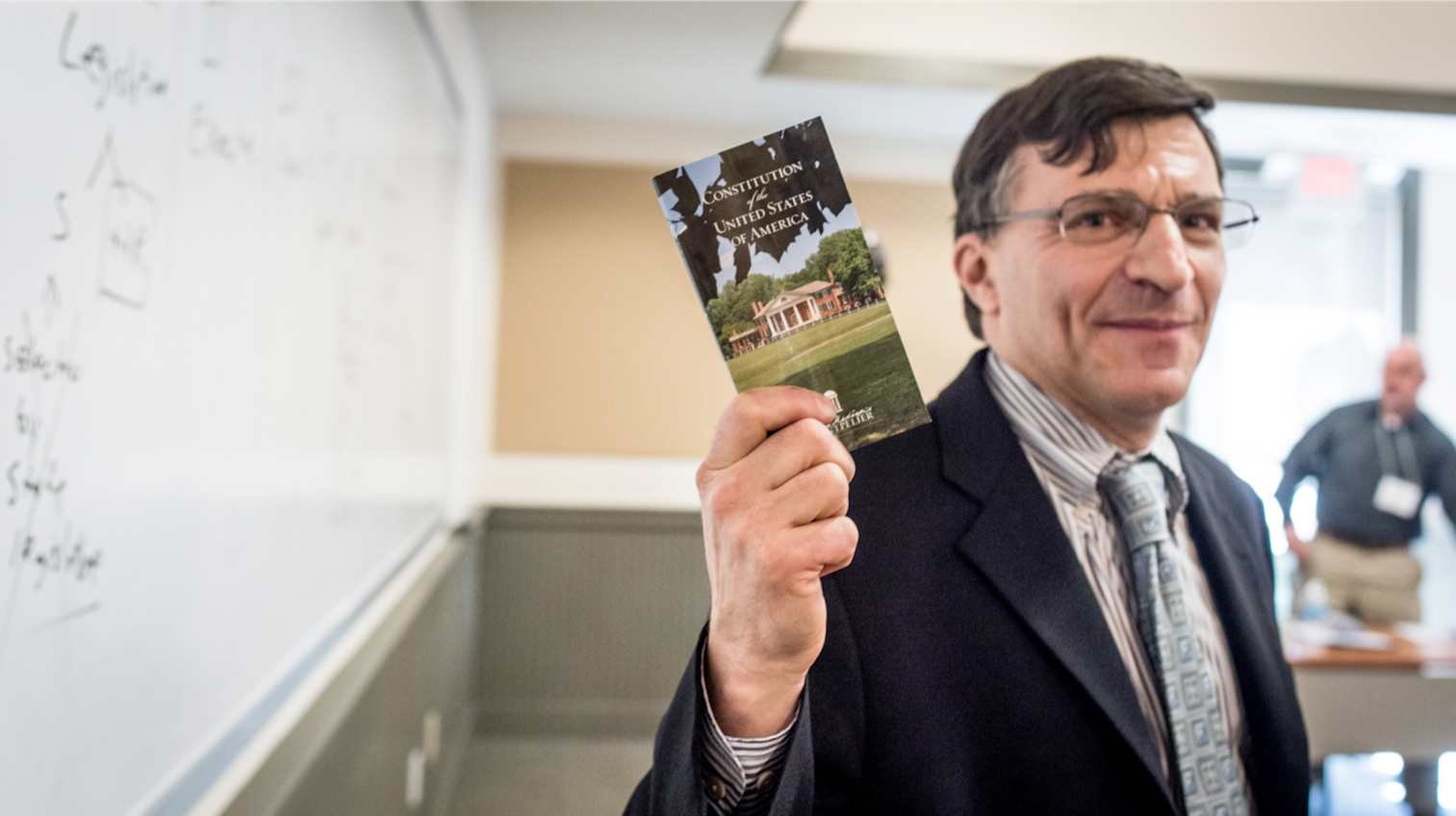
Mike Meyerson holding a Montpelier pocket Constitution during a residential law enforcement program at Montpelier. Courtesy of the Montpelier Foundation
But, what, exactly, does “we the people” mean in 2018? The Constitution was a product of a different era, and though it has withstood the test of time and remains the oldest written Constitution in use in the world today, “the people” it references, privy to these liberties and freedoms, aren’t the same today as they were 231 years ago.
We find ourselves, therefore, ruminating on a few fundamental questions: Is Madison's radical idea of government by the people holding up to modern social shifts? Is it securing “the blessings of liberty” for all Americans? Equally?
Not yet.
The Pulse of the People
Montpelier seeks to understand modern perceptions of the Constitution
We uncovered this answer by conducting the first edition of what will become a recurring national survey. With the help of global analytics firm, Edelman Intelligence, we set out to get a feel for how Americans relate to, perceive, and understand the Constitution.
“It is our responsibility as an organization to highlight Constitutionally-relevant information on a regular basis and to lead the debate and discussion about the document that framed our democracy,” says President & CEO, Kat Imhoff. Montpelier plays an active role in leading the conversation about how we, as people, can ensure that everyone in American society can realize the full promise of human freedom outlined in the Constitution.”

Montpelier aerial. Aaron Watson, courtesy of the Montpelier Foundation.
"Montpelier plays an active role in leading the conversation about how we, as people, can ensure that everyone in American society can realize the full promise of human freedom outlined in the Constitution."
Kat Imhoff, President & CEO | Montpelier Foundation
This research focused specifically on Americans’ perceptions of the Constitution and its role in their everyday lives, the Constitutional issues Americans find most important to them personally, as well as to the nation as a whole, how factors such as age, race/ethnicity and other demographics that impact Americans’ perceptions and priorities relating to the Constitution. With Constitutional rights conversations and issues dominating the news cycle, and public debates about those rights being challenged, diluted, or open to interpretation, it’s essential that we understand the modern relevance of our framing document, because that’s the power of Montpelier. We aren’t just the home of the “Father of the Constitution” – we are a museum of American history and a center for constitutional education that engages the public with the enduring legacy of Madison's most powerful idea, his revolutionary idea, an idea that we wanted to analyze the success of in 2018: government by the people.
Want to take the survey yourself to see how you compare to the American people? Go to www.montpelier.org
The survey was 15-minutes and administered online among a nationally-representative sample of 2,500 people ages 18+ who live within the United States. The margin of error for this sample is +/-2.0% at the 95% confidence level.
The Voice of the Nation
Are we all protected equally?
The results of our research quantify what many of us can feel: America isn’t the same for everyone.

Ethnicity, gender, and socio-economic status strongly influence perceived stability of constitutional rights and protections. Sixty-five percent of Americans believe that ethnic minorities and women do not always experience the constitutional rights they are entitled to. Moreover, 82% of white people say that their rights are upheld regularly, compared to 65% of African Americans, while less than 13% of Americans strongly believe that all Americans’ rights are regularly upheld and respected.
Further, 90% of Americans with incomes exceeding $150,000 believe their constitutional rights are upheld regularly, compared to 66% of those with incomes under $25,000. These results paint a clear picture of where we are as a nation. How Americans experience the dispensation of justice and the security of their rights is heavily based on circumstance.
There are however, a few things that Americans canagree on. 76% of Americans believe their rights are not as secure and stable today as they were in the past, with 80% of Americans worried about rights being diluted or taken away. With technological and societal advancements, more often people are asking if the Constitution still applies and protects our modern liberties and freedoms. While much of what we grapple with today has broad constitutional applications, the gray areas provide opportunities for deliberation and debate, accounting for a lack of confidence in the security and stability of rights.
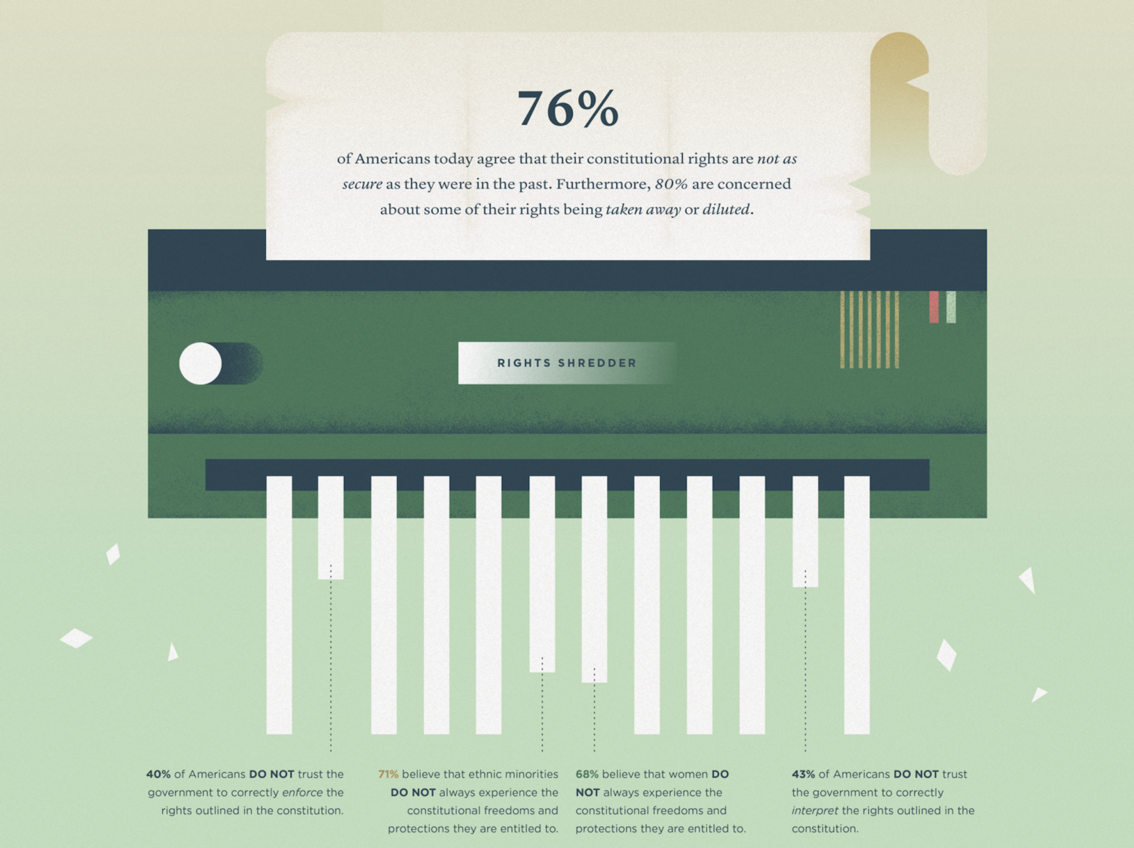
86% of people saying they are interested in learning more about the Constitution, and 93% of responded that police should be required to have in-depth Constitutional training. It’s important that all Americans engage with the Constitution, but especially those charged with upholding its tenets and protecting its enumerated rights and protections.
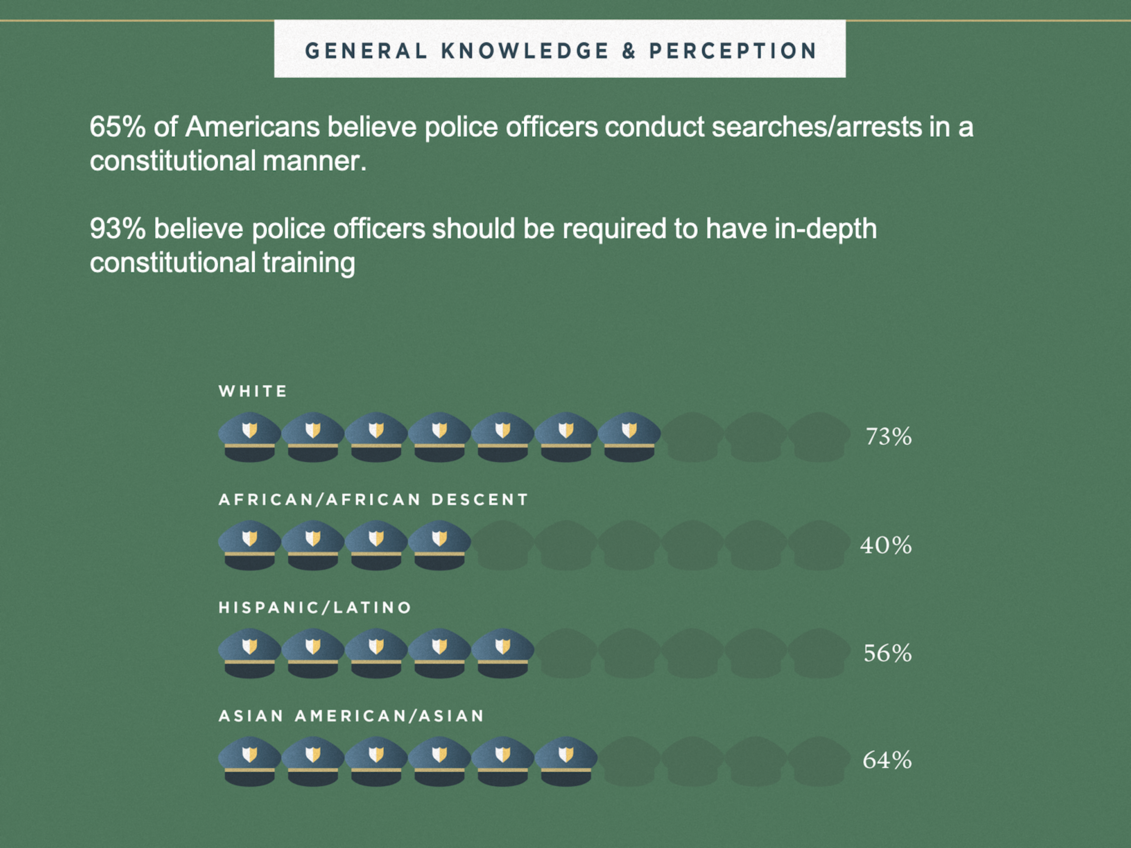
The survey also delved into which Constitutional issues were most important to people personally, and to the national as a whole. Over 90% of Americans think civil rights, data privacy, voting rights, and freedom of the press are the most personally important issues (ahead of gun rights and abortion). However, 53% of Americans believe gun rights is the most important issue facing the nation, followed by civil rights.
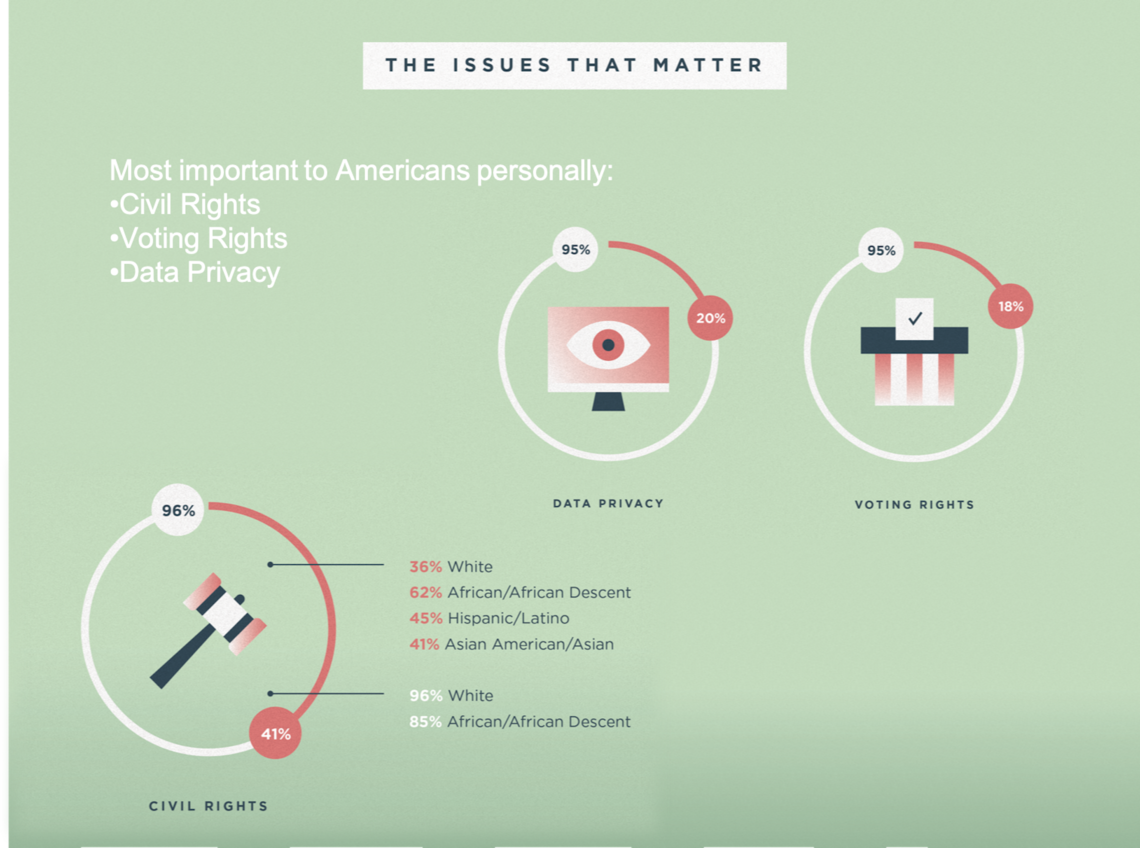
Civil rights, voting rights, and data privacy are the most important issues to Americans personally. Mobelux.
This data lends further credence to Montpelier’s mission of engaging the public in elevated constitutional conversations around complex issues and telling a more complete American story about the continuing pursuit of freedom and fairness. Though there is vagueness in the Constitution as it applies today (Madison could have never predicted things like the level technological proliferation), we have a responsibility to provide the foundation and context for constitutional debates and discussions about salient, modern-day issues like data privacy, civil rights, and gun control.
The Constitution is as relevant today as it was 231 years ago. It’s truly our shared lens as Americans, the one tie that binds us all regardless of race, creed, or color. By educating law enforcement officers, Montpelier is working to ensure police act constitutionally and impartially, as they are sworn to do. By educating teachers, we are helping encourage new generations to embrace constitutional practices locally and nationally. And through our exhibitions and interpretation we are engaging visitors in the ongoing struggle for justice that is woven into our American DNA.
The survey, and use of its results as an actionable tool, will help us close the gap en route to ensuring that all Americans feel, and in reality are, protected by, and treated equally under, the Constitution.
Continuous Conversation
National Archives hosts discussion of democracy
To bring these results to the public, Montpelier held an event at the National Archives in Washington, DC, to discuss the findings and their broader implications on American society and politics.
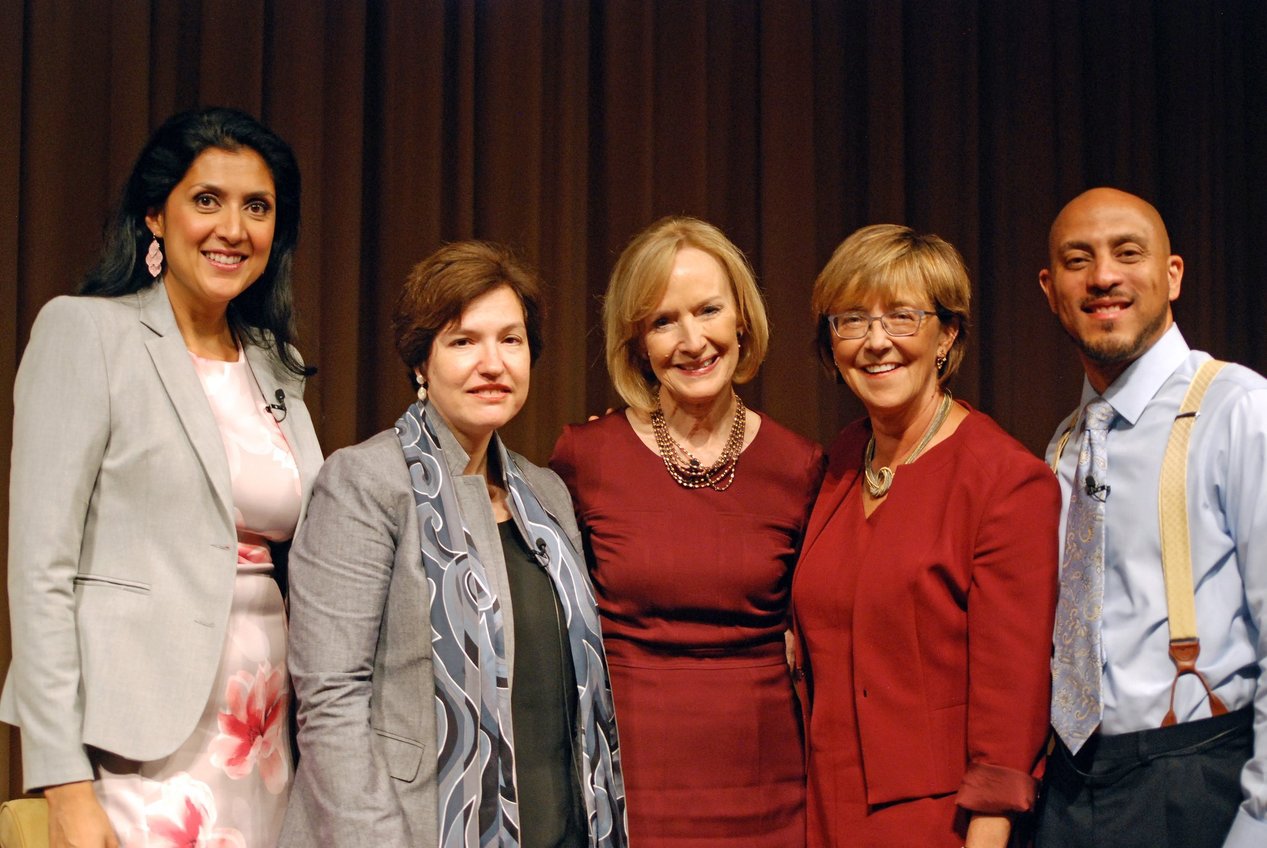
From left: POPVOX CEO, Rachna Choudhry, New York Times columnist, Susan Glasser, PBS NewsHour Managing Editor and Anchor, Judy Woodruff, Montpelier President & CEO, Kat Imhoff, and Ohio State professor, Hasan Jeffries. Kendall Madigan, courtesy of the Montpelier Foundation.
The event was a panel discussion moderated by PBS NewsHour's, Judy Woodruff, that discussed the results of the national survey and how they affect the lived realities of Americans of a variety of demographics.
The panelists, Ohio State professor, Hasan Jeffries, New York Times columnist, Susan Glasser, and POPVOX CEO, Rachna Choudhry, analyzed the findings from a variety of angles and brought their own personal experiences to bear for the audience of over 200.
The panelists, Ohio State professor, Hasan Jeffries, New York Times columnist, Susan Glasser, and POPVOX CEO, Rachna Choudhry, analyzed the findings from a variety of angles and brought their own personal experiences to bear for the audience of over 200.
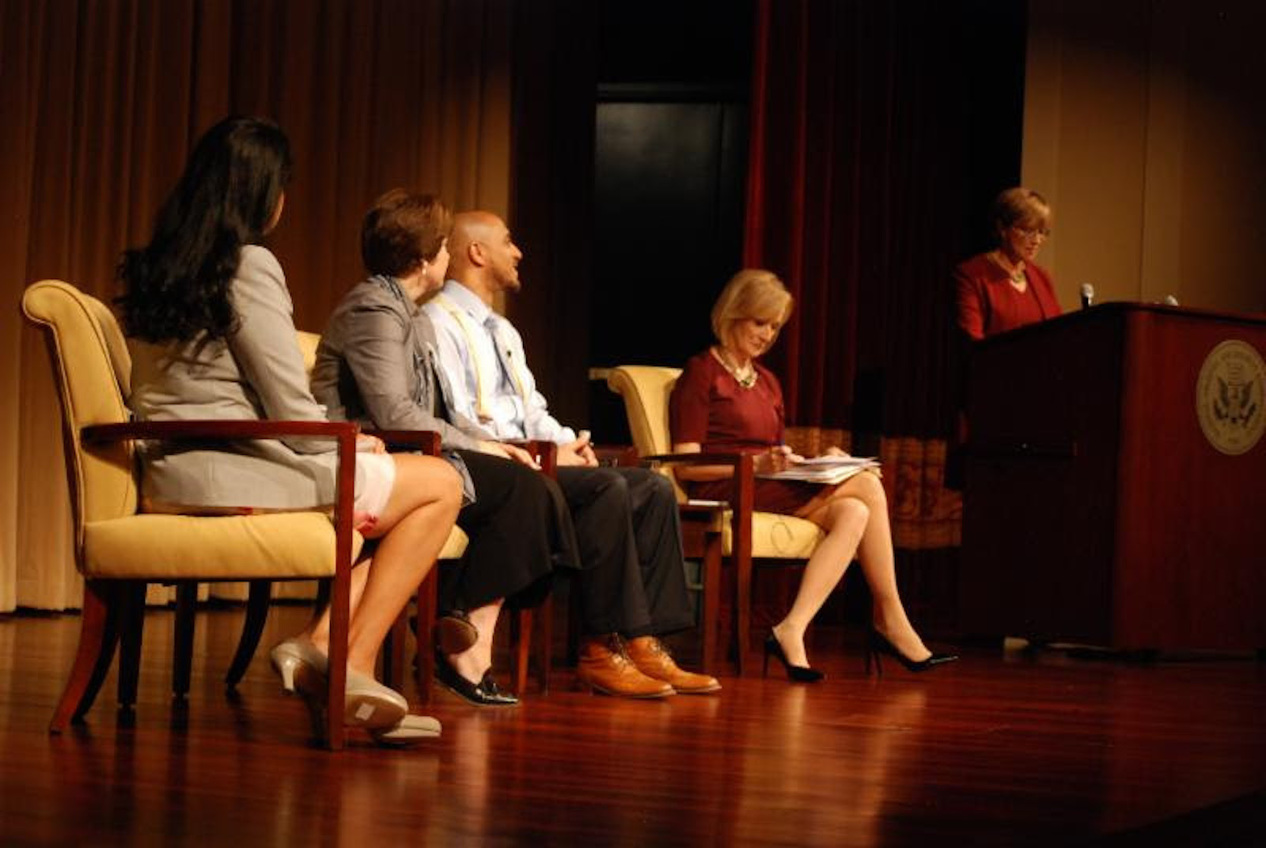
Panelists discuss the results of Montpelier's recent national survey on the Constitution. Kendall Madigan, courtesy of the Montpelier Foundation.
"These results are only important insofar as they are actionable," reminds Price Thomas, Director of Marketing for Montpelier and project-manager of the survey. "It was important to us to have a panel that was diverse in race, gender, and experience discuss not only the academic ramifications of the study, but how we as Americans use and operationalize this information to move forward towards the greater goal of equality."
Madison told us that “knowledge will forever govern ignorance; and a people who mean to be their own governors must arm themselves with the power which knowledge gives.”
"Knowledge will forever govern ignorance; and a people who mean to be their own governors must arm themselves with the power which knowledge gives."
James Madison, 4th President of the United States
It’s not only the scholars, politicians, and lawyers who are participants in this democratic experiment. It’s all of us. We, the people.